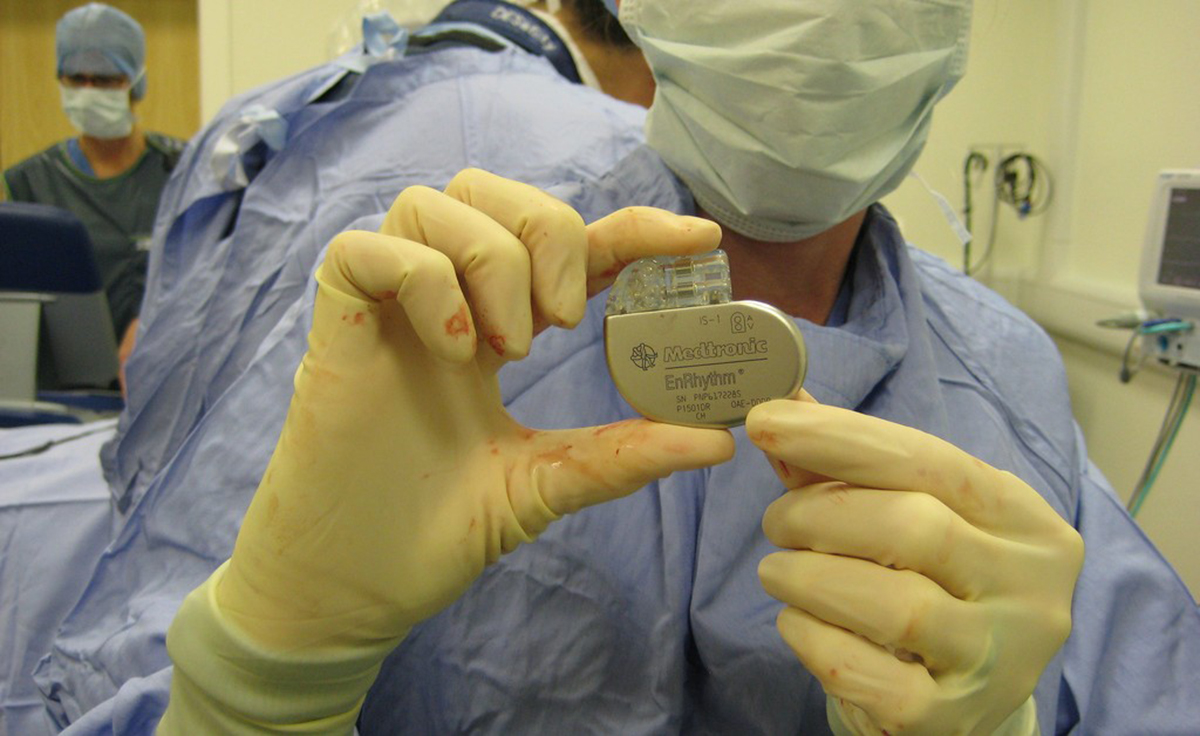Table of Contents
Millions of people who have had heart attacks or a degenerative disease called cardiomyopathy live longer lives because of pacemakers and implantable cardioverter defibrillator.

A pacemaker is a medical device that uses electrodes to send a slight electrical shock to regulate the beating of the heart. A biventricular pacemaker (BVP), also known as CRT (cardiac resynchronization therapy) is a type of pacemaker that stimulates the heart in two locations so that the two ventricles beat in synchrony. Modern pacemakers are externally programmable, enabling the cardiologist to select the most appropriate rhythm for the heart when health conditions change.
An implantable cardioverter defibrillator, also known as ICD, is a medical device that can deliver a shock to the heart in case of sudden death caused by ventricular tachyarrhythmias, extremely fast beats in the lower chambers of the heart. Some of the newer ICD's have leads that can be placed under the skin instead of through a vein into the heart. Nearly all ICD's now can be used to pace the heart during bradycardia, when the pulse is extremely slow.
An ICD is not a substitute for CPR if the heart stops; it is still necessary to do chest compressions in addition to the internal shock generated by the device.
This is usually unpleasant but is almost never fatal. About 1% of ICD's eventually malfunction because of problems with the leads.
People can still die of cardiac arrest even if these devices are functioning perfectly, an ICD only delivering six shocks before it turns itself off, but
Devices that Save Seriously Ailing Hearts
Anyone who receives any kind of pacemaker or ICD is seriously ill. Most protocols only authorize implantation of either of these devices in patients whose ejection fraction, a measurement of the amount of blood leaving the left ventricle with each beat compared to the amount coming in, of 35% or less. Other criteria also apply.
In heart patients for whom these devices are appropriate, however, one- and two-year death rates are usually cut in half compared to treatment with medication alone. A pacemaker can help a heart patient find more energy for daily activities, maybe not enough to get out and jog around the block (although some heart patients who have pacemakers can do this), but maybe enough to take care one's own dressing, bathing, and household chores or even enough to have sex.
A Frequently Asked Question: What About ICDs and Sex?
ICD's are programmed to correct tachycardia, when the heart beats too fast. Sex makes the heart beat faster, and it's not impossible for an ICD to go off during sexual intercourse. When this happens, the person who has the implanted cardioverter device will usually feel a strong shock, but the partner usually only feels a tingling sensation.
See Also: Apple Developing Medical Devices?
Regular remote monitoring of the device, however, can extend life even longer and enable even greater physical activity.
- Mittal S, Piccini JP, Fischer A, et al. Increased adherence to remote monitoring is associated with reduced mortality in both pacemaker and defibrillator patients. Heart Rhythm Society 2014 Scientific Sessions, May 8, 2014. San Francisco, CA. Abstract LB01-05.
- Photo courtesy of Steve Winton by Flickr : www.flickr.com/photos/winton/2015221291
- Photo courtesy of juliaf by FreeImages : www.freeimages.com/photo/799205


Your thoughts on this